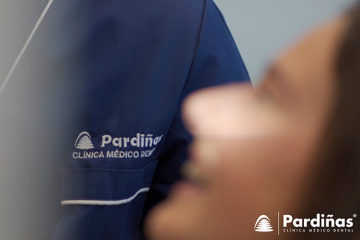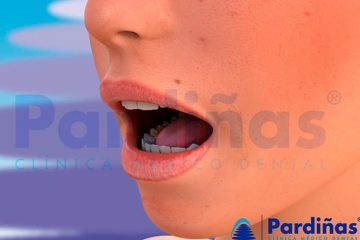Xerostomia or dry mouth sensation is the result of an inadequate saliva flow. It is not a disease, but a symptom of a medical disorder, the consequence of certain habits or life situations, or a side effect of certain medications. We talk about the causes and treatments of dry mouth in this article:
-
1) The importance of saliva in health
-
2) Causes of dry mouth
- 2a) Sjögren's syndrome
- 2b) Diabetes and dry mouth
- 2c) Salivary gland disorders
- 2d) Stress and anxiety
- 2e) Other diseases that cause dry mouth
- 2f) Dry mouth caused by medications
- 2g) Chemotherapy and radiotherapy
- 2h) Xerostomia in older people
- 2i) Dry mouth during pregnancy
- 2j) Unbalanced diet
- 2k) Alcohol, tobacco and drugs
- 2l) Public speaking
- 2m) Dehydration
- 2n) Breathing through the mouth
- 2o) Dry mouth at night
- 3) Types of xerostomia
- 4) How is xerostomia diagnosed?
- 5) Symptoms and consequences of dry mouth
- 6) How to treat dry mouth
1) The importance of saliva in health
Brushing your teeth and using mouthwash and flossing is essential to maintain proper oral hygiene. However, these procedures alone are not able to remove all microbes in the mouth. Collaboration of saliva is needed. Saliva is composed of a mixture of enzymes, nutrients and antibodies which act against pathogenic organisms. It’s also an ally in the working process of teeth and gums. Saliva enzymes initiate food digestion. Mainly, enzymes break down carbohydrates into smaller units and simple sugars. In fact these sugars are used by bacteria to feed and to produce acids, but saliva regulates the pH of the mouth avoiding the development of these acids.
Saliva is the mouth's main defense against tooth decay, as it breaks down food and other waste, neutralizes acids produced by bacteria in the mouth, and provides disease-fighting substances throughout the mouth. Without saliva, cavities and other diseases can progress very quickly. Besides this digestive and antibacterial function, saliva also consists of mineral ions, especially calcium and phosphate, which are the materials from which teeth are formed. Therefore, saliva helps to remineralize teeth and to repair small lesions in the enamel. The importance of saliva is such that the body produces about a liter a day, especially during meals. To generate the right amount of saliva it is very important to keep the body hydrated. At night, saliva production is stopped or minimized, which is why sometimes people wake up with their mouths completely dry and even with bad breath.
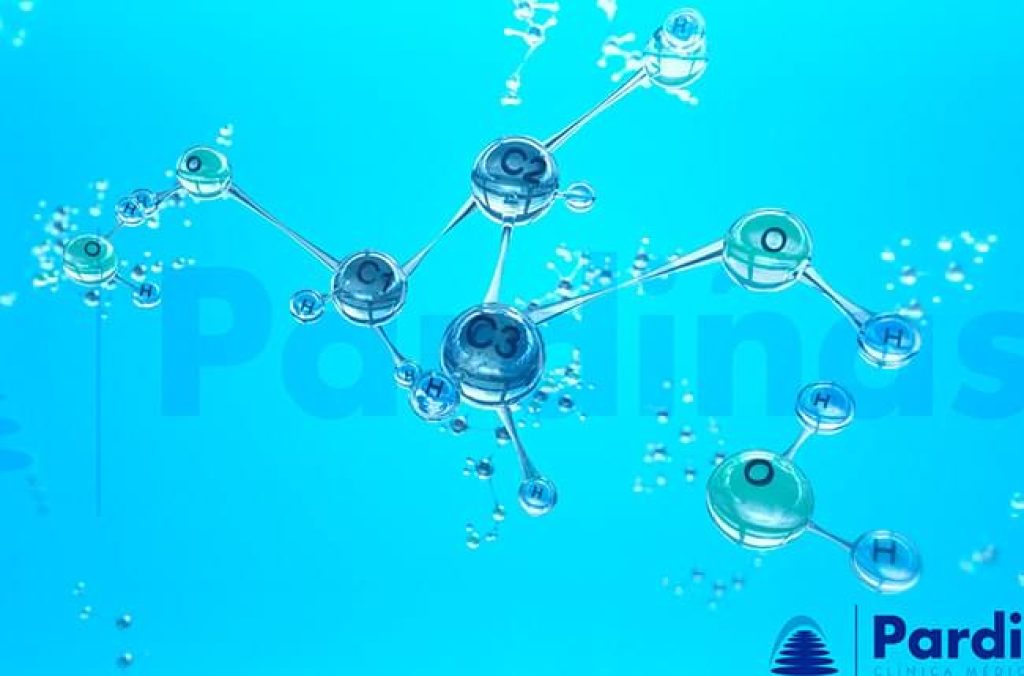
2) Causes of dry mouth
As we mentioned previously, dry mouth is not a disease in itself, but rather a symptom that can be caused by some systemic disease or the side effect of certain medications or treatments:
2a) Sjögren's syndrome
In certain cases, dry mouth may be an indicator of Sjögren's syndrome, a chronic autoimmune disorder in which the body's immune system mistakenly attacks its own glands, producers of saliva and tears, as well as other organs. This medical condition can cause the appearance of ulcers or canker sores in the mouth, deterioration of the teeth and inflammation of the gums. Sjögren's syndrome is not the only disease that can cause dry mouth: diabetes too.
2b) Diabetes and dry mouth
Diabetes is closely related to dry mouth. On the one hand, due to the high blood glucose levels of diabetics, the body tries to eliminate excess glucose through urine. This process can lead to dehydration which can cause dry mouth. On the other hand, Diabetes can affect the function of the salivary glands and reducing saliva production. Besides, some medications used to treat diabetes can have side effects including xerostomia.
2c) Salivary gland disorders
These organs are the producers of saliva so any condition can trigger episodes of dry mouth. The problem most related to this disorder is sialolithiasis, which is the formation of stones (sialoliths) in the drainage ducts of the salivary glands or in the gland itself, reducing or preventing the release of saliva.
2d) Stress and anxiety
Dry mouth can be one of the symptoms of stress and/or anxiety, two situations in which our body is on alert and can function inappropriately. In addition, anxiety very directly affects breathing, which can contribute to dryness.
2e) Other diseases that cause dry mouth
There are other common diseases that can cause xerostomia in addition to those already described. Here we include colds, covid, flu or any other disease that can block the airways, causing decreased air circulation in the mouth and increased evaporation of saliva.
2f) Dry mouth caused by medications
There are some medications that can generate a certain dry mouth in its consumers as we have already anticipated. Here we include antihistamines, decongestants, certain analgesics, diuretics, antihypertensives or antidepressants, among others.
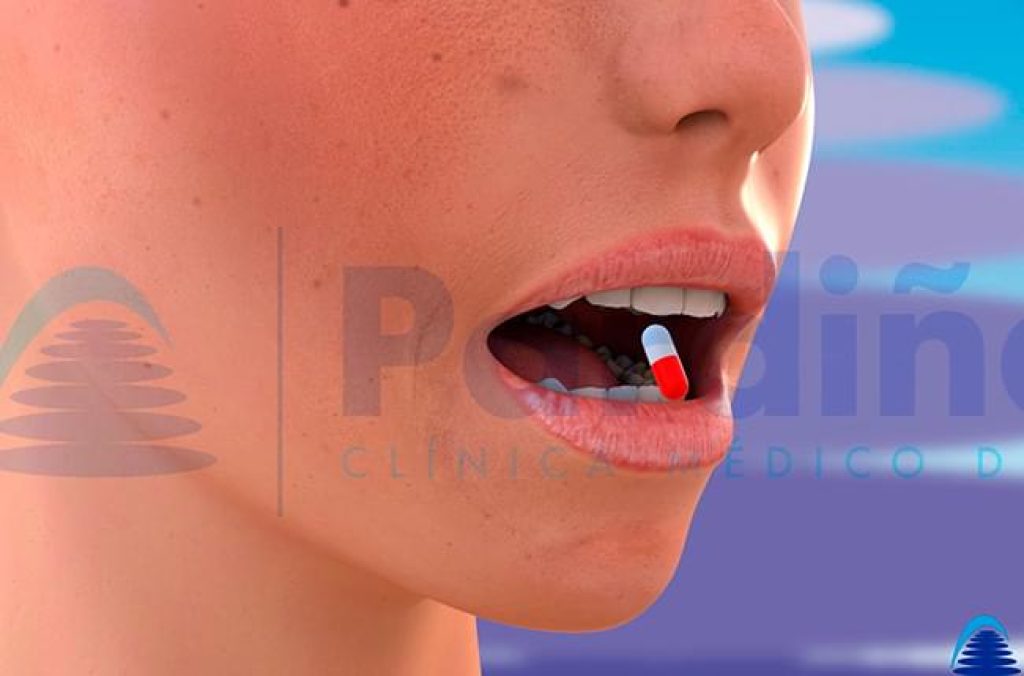
2g) Chemotherapy and radiotherapy
It is known to all that chemotherapy and radiotherapy, two cancer treatments, have many side effects and dry mouth is one of the common ones. Chemotherapy is designed to attack fast-growing cells, such as cancer cells, but it can also damage salivary cells, resulting in decreased saliva production. In addition to reducing the amount, chemotherapy can alter the composition of saliva, making it thicker and aggravating the feeling of dry mouth. Meanwhile, radiation therapy to the head and neck can directly damage the salivary glands if they are in or near the radiation field. This can lead to a significant decrease in saliva production, both during and after treatment. In some cases, the damage may be permanent.
2h) Xerostomia in older people
This problem is more common in the elderly although anyone can suffer from dry mouth. Firstly, due to poorer functioning of the salivary glands, but also because it is more common to have health problems, take medications, have bad habits... after a certain age. Here we would also include missing teeth, since edentulism is also closely related to this health problem.
2i) Dry mouth during pregnancy
Pregnancy brings a whirlwind of hormonal changes that can affect the composition and production of saliva. Fluctuations in estrogen and progesterone levels can have an impact on the salivary glands, reducing saliva production. Additionally, during pregnancy, the volume of blood and fluid in the body increases significantly to support the growing fetus. If water intake is not adequate, this increased fluid demand can lead to dehydration. Nausea and vomiting, common especially during the first trimester, can contribute to dry mouth.

2j) Unbalanced diet
A diet with excess carbohydrates, very salty, sugary or very spicy products and a lack of fruits and vegetables can cause dry mouth. Carbonated and/or caffeinated drinks are not good allies in this cause either.
2k) Alcohol, tobacco and drugs
The consumption of alcohol, tobacco and drugs has no health benefits and does not have positive effects on saliva issues, since any of these substances cause dehydration.
2l) Public speaking
Public speaking usually involves greater effort on the part of the speaker, who will generally try to vocalize and project better. Doing so without properly hydrating could lead to a lack of saliva.

2m) Dehydration
We must not forget that any situation that leads you to spend more liquids than you need will bring episodes of dehydration. Here we include practicing sports or exposure to very high temperatures.
2n) Breathing through the mouth
The relationship between mouth breathing and dry mouth is directly proportional and of great importance for oral health. When breathing through the mouth, air circulates directly over the internal surfaces, accelerating evaporation of saliva. Since the nose plays a crucial role in humidifying, warming, and filtering inhaled air, skipping this natural process when breathing through the mouth can result in a constant feeling of dryness. This form of breathing may be temporary, such as during an episode of nasal congestion due to a cold, or it may be a chronic condition due to various structural, functional or habitual causes such as dental malocclusion.
2o) Dry mouth at night
The activity of the salivary glands decreases while we sleep, so less saliva is produced than during the day. And although this is common to everyone, if someone has a problem with dry mouth, it can become especially complicated at night. It is important to go to sleep properly hydrated for all these reasons.

3) Types of xerostomia
We can distinguish two types of xerostomia depending on the cause that is causing dry mouth,:
3a) Reversible xerostomia
It is characterized by registering residual glandular activity where salivary secretion can be stimulated or regulated. This situation can be caused by medications, stress, dietary problems, or public speaking.
3b) Irreversible xerostomia
We speak of irreversible cases when there is an irreparable damage at the glandular level that prevents its correct functioning. This clinical picture can be found in patients with Sjögren's syndrome or cancer patients who receive large doses of radiation.
4) How is xerostomia diagnosed?
Although dry mouth is still a subjective sensation of the patient, the mouth can be analyzed and diagnosed as possible problems in the functioning of the salivary glands. Among the most common procedures are:
4a) Sialometry
Sialometry is an objective methodical process in the determination of salivary flow which allows correlation with the degree of xerostomia. The performance of this technique will take place at the level of the different saliva-producing glands, or by determining the salivary volume produced by all of them together, which is called global salivary flow.
4b) Biopsia glandular
This diagnostic test allows us to determine possible inflammation and tissue destruction salivary.
4c) Scintigraphy
This is a non-invasive imaging test from which it will be possible to obtain a study of the morphology and function of glands salivate and assess the situation.
4d) Other tests for diagnosing dry mouth
Procedures such as sialography, ultrasound, magnetic resonance or computerized tomography, but all are less common procedures.
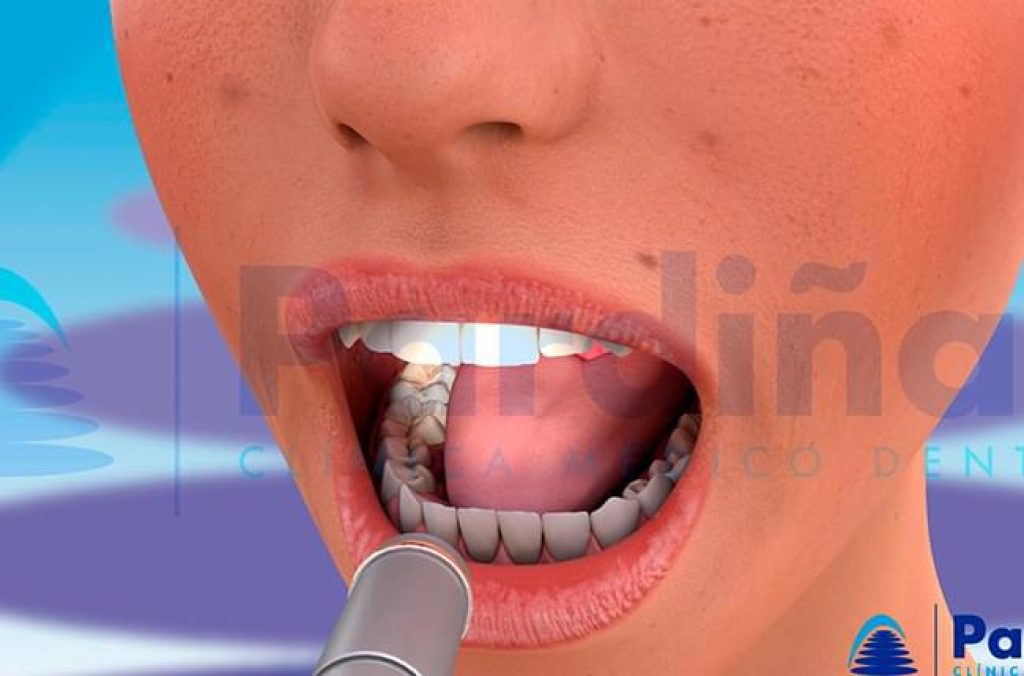
5) Symptoms and consequences of dry mouth
This problem can lead to other problems of various kinds beyond the discomfort typical of feeling dry in the mouth.
5a) Dry and sore throat
A continued lack of saliva in the mouth can end up moving to the throat, where the lack of moisture in the mucous membranes can cause dryness, constant discomfort, hoarseness and itchy throat.
5b) Burning sensation in the mouth
Lack of lubrication in the mucous membranes can cause a burning sensation both on the tongue, gums and cheeks.
5c) Dryness in the nasal passages
Like the throat, the nasal passages can also become excessively dry as a result of this problem.
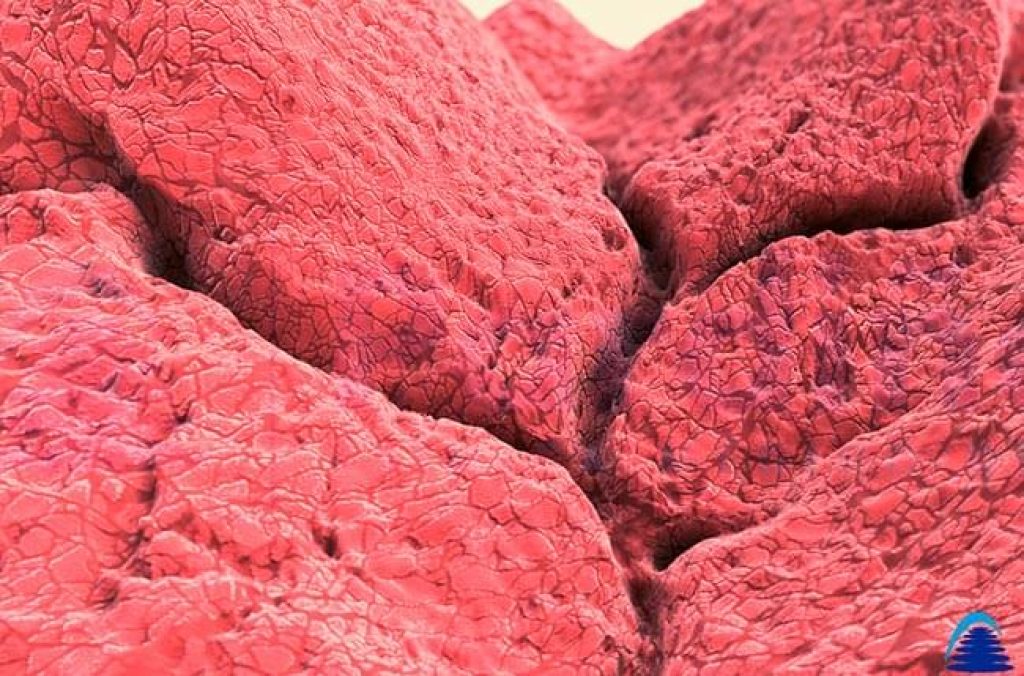
5d) Hoarseness
The airways need lubrication to function properly, both at physiological and defensive level.
5e) Pasty mouth
A decreased flow of saliva can cause this one to be denser and generate a pasty mouthfeel.
5f) Chapped lips
The lips have to remain correctly hydrated to maintain it healthy, so xerostomia can end up leading to chap.
5g) Sores caused by dry mouth
The lack of saliva causes the mucous membranes to be less protected against ulcers and thrush oral, that is, before the sores.
5h) Higher incidence of cavities
One of the most serious consequences of dry mouth is that it can increase the incidence of cavities, since saliva is the body's main defense against them, so these can develop more easily if the flow decreases.
5i) Difficulty speaking
Saliva is also necessary for speaking, so inadequate mouth lubrication can make pronunciation of words more difficult.
5j) Swallowing problems
Saliva also plays a role in the slippage of the bolus through the digestive system, so its absence can complicate this process.
5k) Dry mouth and bad breath
The relationship between saliva and bad breath deserves a separate space: dry mouth is one of the most frequent causes of this problem. When there is not enough saliva, food remains are not removed correctly, which usually generates a greater volume of plaque on the teeth and tongue, and its subsequent bad odor. Furthermore, the lack of saliva encourages odor-causing bacteria to proliferate freely.
6) How to treat dry mouth
It is worth remembering that there is an irreversible xerostomia and a reversible one and, of course,your treatment is different.
6a) Home remedies for dry mouth
In general terms, to solve dry mouth problems, it is always recommended to increase water intake and stimulate production of saliva with the use of sugarless gum and candy. Likewise, you should try to change your diet, favoring the consumption of fruits and vegetables and reducing very sweet, very salty, very acidic, very hot or very spicy foods. Last, but not least, avoid, or reduce as much as possible, the consumption of alcohol, tobacco and/or drugs.
6b) Medical treatment for dry mouth
If xerostomia is a consequence of any disease, whether it is problems with the salivary glands, diabetes or Sjögren's syndrome, it is essential to put yourself in the hands of professionals to try to solve or, at least, alleviate the situation. The professional may also recommend the use of artificial saliva, certain types of oral rinses and, in more serious cases, medications to stimulate saliva production as treatment. If dry mouth is caused by any medication, it is also important to share it with the medical professional and try to find an alternative or joint solution.
